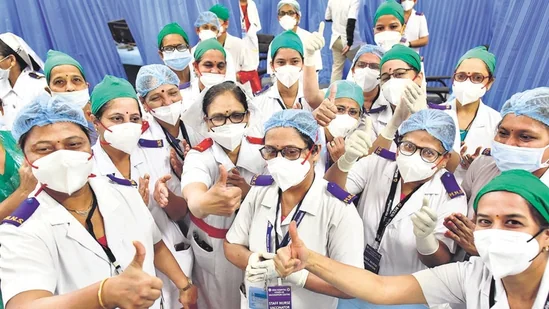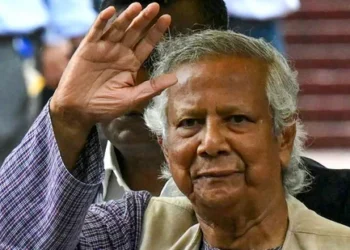Facing a 40–64% nursing seat deficit, Manipur clears new B.Sc Nursing Colleges and GNM schools to expand healthcare access in underserved areas.
BY PC Bureau
The Manipur government has approved the establishment of two new B.Sc Nursing Colleges — one in the hill district of Churachandpur and another in the valley district of Thoubal — under the Central Sector Scheme for the Development of Nursing Services. Sumant Singh, Commissioner-cum-Secretary (Health & Family Welfare), annoucned the decision in Imphal.
The move is aimed at addressing the acute shortage of nursing seats in the state while creating direct and indirect employment opportunities. The initiative also seeks to empower youth, particularly women, by equipping them with professional skills for careers in India and abroad.
The approval came during a ‘Governor-in-Council’ meeting chaired by Governor Ajay Kumar Bhalla at the Raj Bhavan in Imphal on Monday, attended by the Chief Secretary and the Health Department Commissioner.
READ: Major Healthcare Crisis Looms in Manipur as Doctors Decide to Intensify Stir
In addition, the government plans to set up another B.Sc Nursing College at Churachandpur under the centrally sponsored scheme Augmenting Nursing Education – Establishment of New Colleges of Nursing (CoN) Co-located with Medical Colleges. Two new state-funded GNM Nursing Schools will also be established in Thoubal and Churachandpur, replacing the existing GNM schools that are being phased out following upgrades.
Currently, Manipur has 14 GNM schools (2 government and 12 private) with an intake capacity of 519 seats, against more than 800 annual applicants. Likewise, 16 B.Sc Nursing colleges (2 government and 14 private) offer 610 seats, but the number of qualified applicants exceeds 1,600 every year. This translates into a seat deficit of nearly 40% in GNM courses and 64% in B.Sc Nursing programmes.
READ: Manipur HC Takes Up Plea of Kuki Women for “Damages” in Crackdown
The new colleges and schools will help bridge these gaps, expand healthcare access, and strengthen public health delivery, particularly in rural and underserved areas of the state.
Health experts have welcomed the move, noting that the demand for trained nurses is rising not only within India’s public health system but also in international markets such as the Gulf, Europe, and Southeast Asia. They say the expansion will not only reduce unemployment but also bring economic benefits to families who rely on overseas remittances from skilled professionals.
Moreover, educationists argue that locating one college in the valley and another in the hill districts reflects a balanced policy approach in a state often divided along ethnic and geographical lines. By ensuring equitable access to professional courses, the government hopes to promote inclusivity and reduce regional disparities in higher education.













